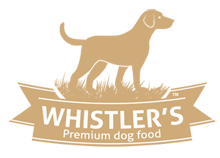Can Hypoallergenic Dog Food Help With Itchy Skin?
Itchy skin in dogs can be a frustrating and persistent problem for both pets and their owners. Many factors can cause this condition, ranging from allergies to environmental irritants, but one of the most common culprits is food intolerance or allergies. For dogs with these sensitivities, hypoallergenic dog food can be a game-changer in reducing or eliminating itchy skin and improving their overall quality of life.
In this article, we’ll explore the potential link between itchy skin and food allergies in dogs, how hypoallergenic dog food works, and whether it can truly help alleviate your pet’s discomfort.
Understanding Itchy Skin in Dogs
Itchy skin, also known as pruritus, is a common condition that can cause dogs to scratch, chew, or lick themselves excessively. This can lead to more severe problems like hair loss, sores, or infections if left untreated. Itching can be caused by several factors, including:
Flea Allergies: Flea bites are a common cause of itching in dogs. Even a single flea bite can trigger intense itching in a dog allergic to flea saliva.
Environmental Allergens: Pollen, dust mites, mold, and grass can all cause skin reactions in dogs with environmental allergies.
Contact Dermatitis: This happens when a dog comes into contact with an irritating substance like chemicals or certain plants.
Food Allergies: Many dogs develop sensitivities or allergies to certain proteins or ingredients in their diet, which can manifest as itchy skin.
Food allergies are believed to be responsible for about 10-20% of all allergic skin reactions in dogs. The good news is that if your dog's itchy skin is related to food sensitivities, hypoallergenic dog food might provide relief.
What Are Dog Food Allergies?
A food allergy occurs when a dog’s immune system reacts abnormally to an ingredient in their food.
When a dog has a food allergy, their immune system perceives certain ingredients as harmful, leading to inflammation and discomfort. This can result in symptoms such as:
Itchy Skin: Often around the face, ears, paws, and belly.
Redness and Rashes: Especially around the inflamed areas.
Frequent Ear Infections: Recurring ear infections can be a sign of a food allergy.
Gastrointestinal Issues: Diarrhea or vomiting may accompany itchy skin in some dogs.
These symptoms can be uncomfortable and frustrating, but addressing the underlying cause—food allergies—can help alleviate them.
How Can Hypoallergenic Dog Food Help?
Hypoallergenic dog food is specially formulated to avoid common allergens and reduce the risk of triggering an allergic reaction.
By switching your dog to hypoallergenic food, you can potentially reduce inflammation and prevent allergic reactions, which can help alleviate itchy skin and other symptoms.
Benefits of Hypoallergenic Dog Food for Itchy Skin
For dogs suffering from itchy skin due to food allergies, hypoallergenic dog food offers several benefits:
- Reduction of Inflammatory Responses
When a dog consumes a hypoallergenic diet free from triggering allergens, their immune system does not overreact. This helps to reduce inflammation, the root cause of itching. As a result, many dogs experience relief from excessive scratching, licking, and discomfort.
- Improved Skin and Coat Health
Many hypoallergenic dog foods contain beneficial ingredients like omega-3 and omega-6 fatty acids, which are essential for maintaining healthy skin and a shiny coat. These fatty acids have anti-inflammatory properties that can further reduce itchiness and help your dog's skin recover from irritation or sores.
- Fewer Secondary Skin Infections
Constant scratching and biting can lead to open sores or wounds, which can become infected. By addressing the root cause of itchy skin, hypoallergenic food reduces the likelihood of secondary skin infections, promoting overall skin health.
- Tailored to Specific Sensitivities
Hypoallergenic dog food comes in various formulas tailored to specific dietary sensitivities, ensuring that you can find the best match for your dog’s unique needs.
How to Transition to Hypoallergenic Dog Food
If you suspect that your dog’s itchy skin is related to a food allergy, it’s essential to work with a veterinarian to make the right dietary changes. A vet may recommend conducting a food elimination trial, where your dog is fed a hypoallergenic diet exclusively for 8-12 weeks to determine if their symptoms improve.
During this period, it’s crucial to avoid giving your dog treats, table scraps, or any food that could interfere with the results of the trial.
After the elimination trial, your vet may advise slowly reintroducing certain ingredients to identify the specific allergen causing the reaction. This process can help confirm if hypoallergenic food is the right long-term solution for your dog’s itchy skin.
Does Hypoallergenic Dog Food Always Work?
While hypoallergenic dog food can be incredibly effective for dogs with food allergies, it’s important to note that not all cases of itchy skin are related to diet. If environmental allergens, parasites, or other health issues are causing the itchiness, hypoallergenic food alone may not solve the problem.
In some cases, a combination of dietary changes, medication, and lifestyle adjustments may be necessary to provide relief for your dog.
Conclusion: Is Hypoallergenic Dog Food the Right Choice?
Hypoallergenic dog food can be a valuable solution for dogs suffering from itchy skin due to food allergies or sensitivities. By eliminating common allergens and providing high-quality, digestible nutrition, these diets can help reduce inflammation, support healthy skin, and improve your dog’s overall well-being.
If your dog experiences chronic itching and you suspect food allergies may be the cause, consult your veterinarian to discuss the benefits of switching to hypoallergenic food. The right diet could make all the difference in helping your furry friend lead a more comfortable and itch-free life.
